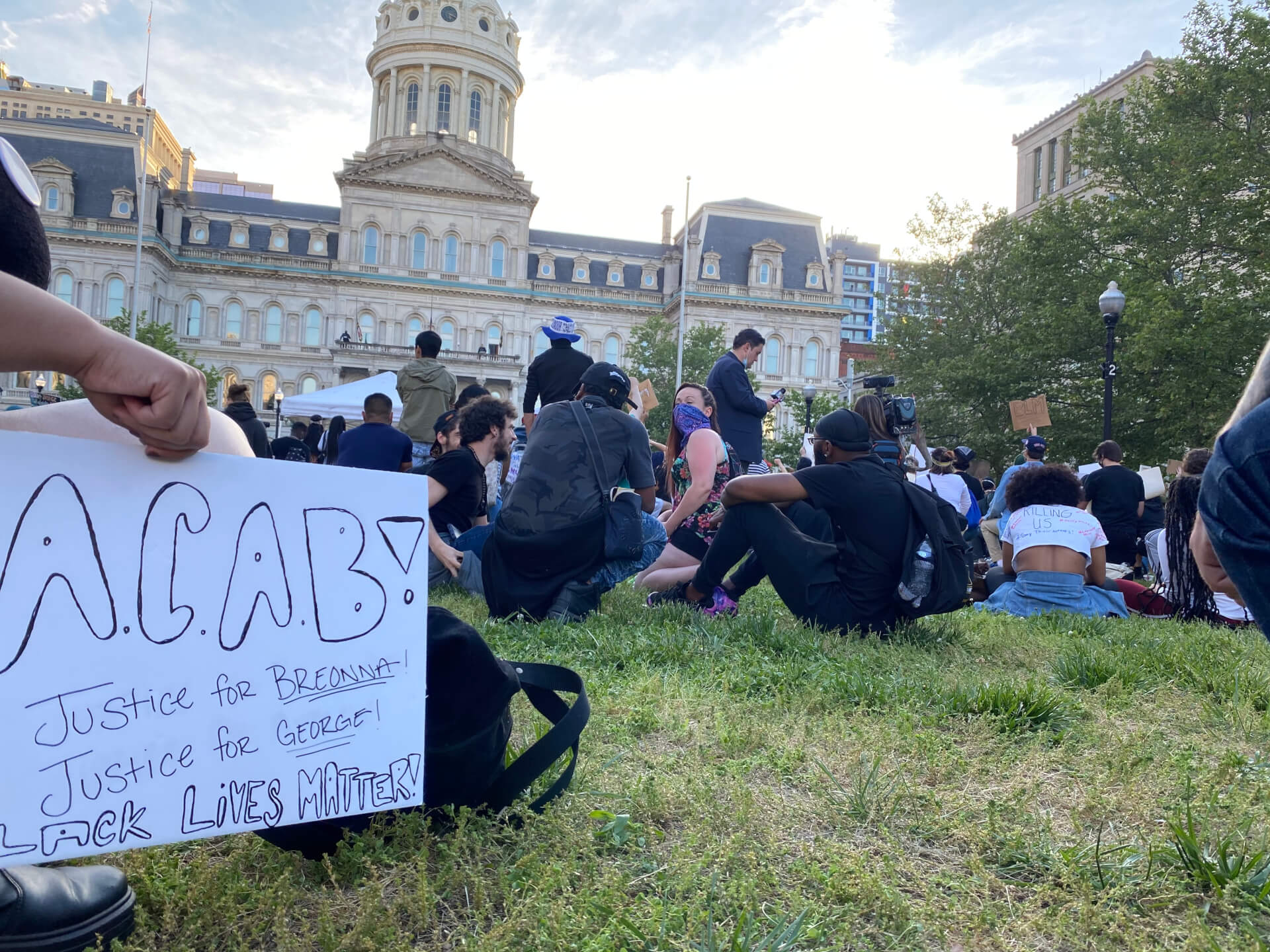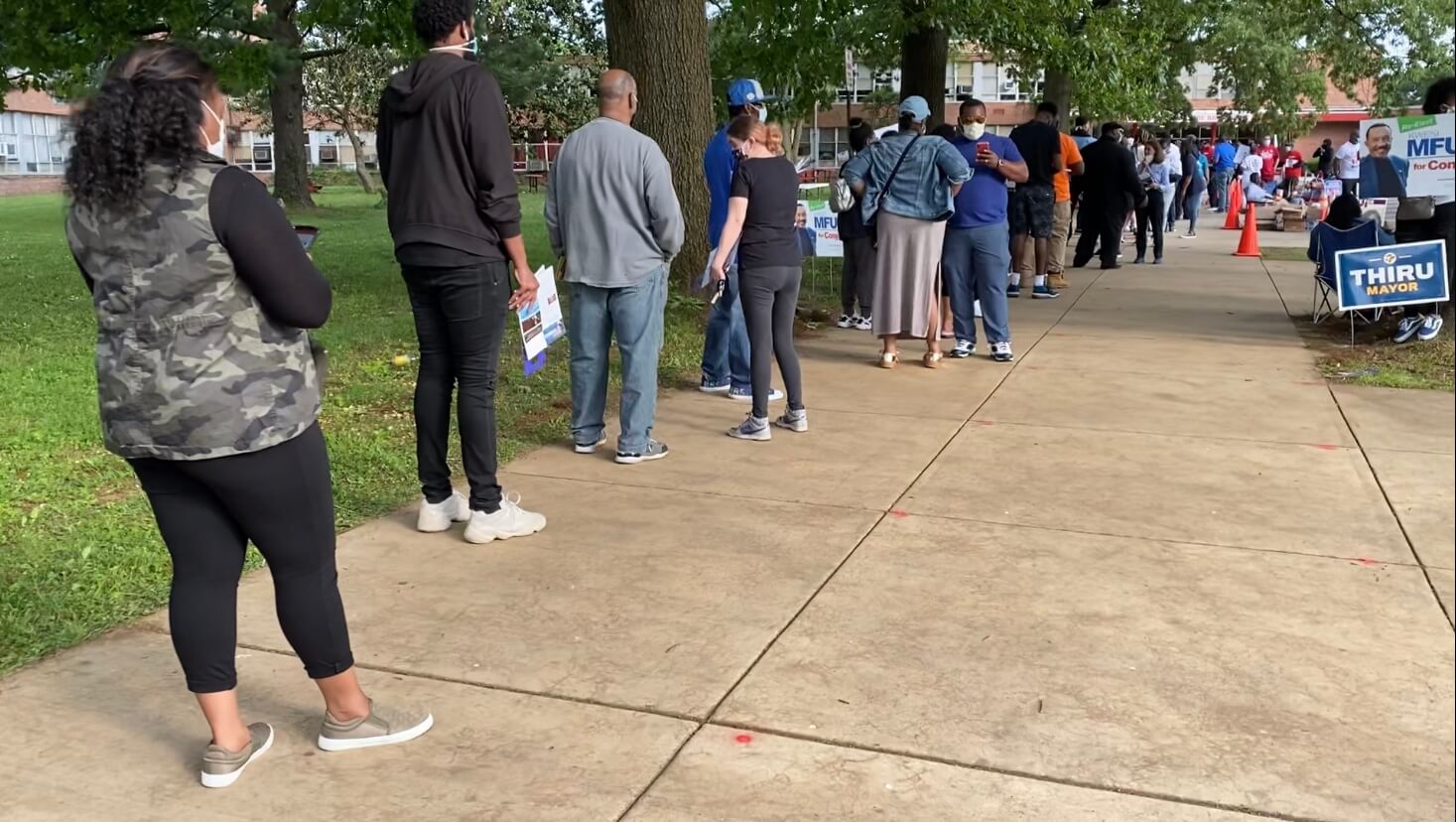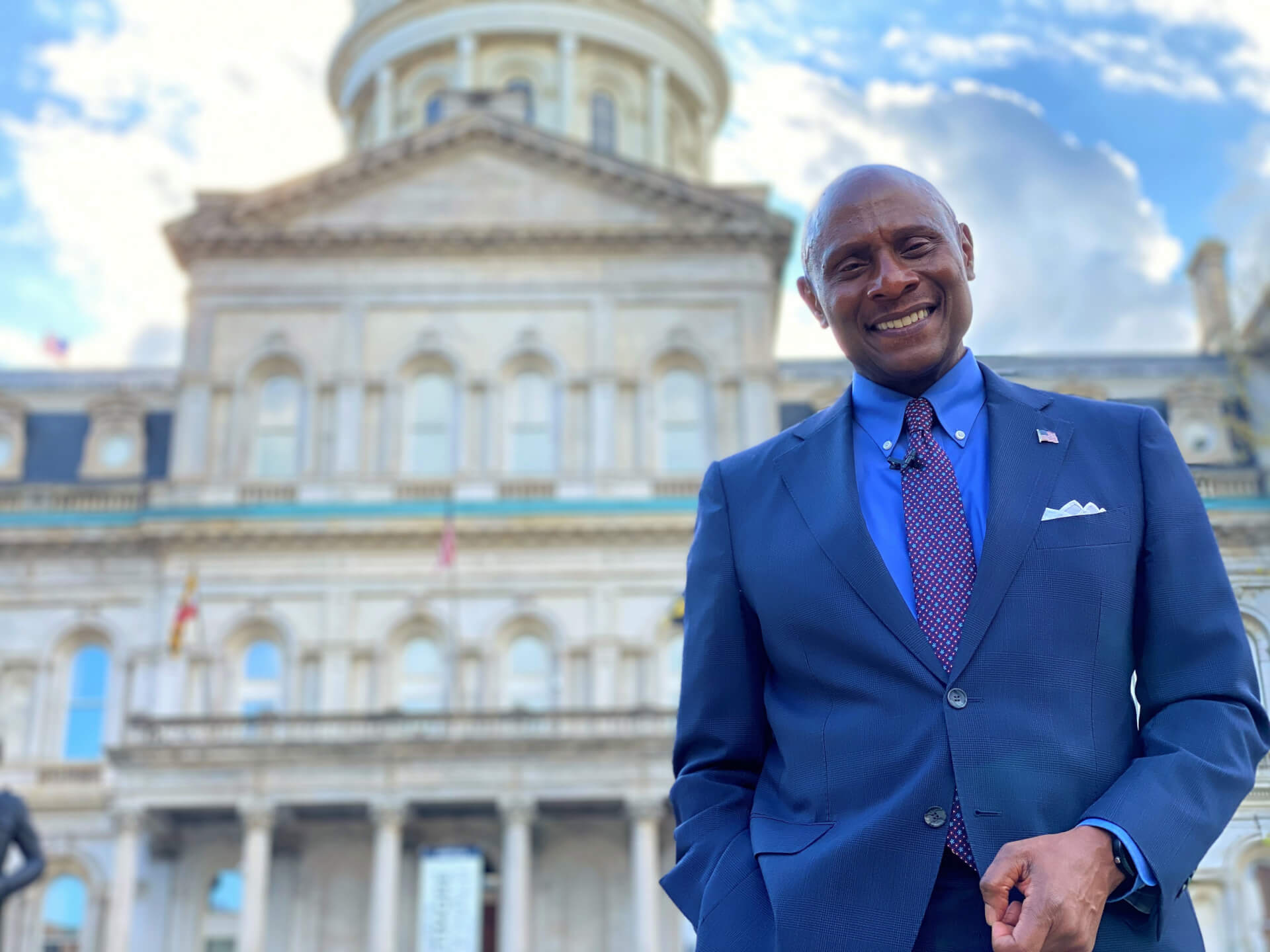Mary Miller: COVID-19 Could Devastate Baltimore’s Economy, But Leaders Can Help

As the number of confirmed COVID-19 cases rises in Baltimore and Maryland, public health services are working around the clock to save lives.
At the same time, our elected leaders should be doing all they can to stem the economic impact of this pandemic.
This is not a slow-moving recession. This is a body blow to the local economy that demands a decisive response.
A sharp contraction of economic activity – mass cancellations of gatherings at sports events, entertainment venues, conferences, church services, and now all non-essential businesses – is having many spiraling effects already. As with the virus itself, our most vulnerable residents are most exposed to the pandemic’s economic damage.
Federal Bureau of Economic Analysis data shows that Baltimore’s 2018 total GDP – a measure of annual economic output – was $52 billion. A 10% drop in economic activity for the second quarter could translate into economic losses of over a billion dollars – significantly impacting Baltimore residents, many of whom are already struggling. Unemployment is rising sharply, adding thousands of lost jobs and income.
With the right public health precautions and responses, the pandemic shock may be contained within a few months. Without the right fiscal precautions and responses, economic pain will last much longer.
Working on the national economic recovery from the great recession in the Obama administration taught me the importance of being bold, being decisive, and keeping assistance as direct as possible. We worked in lockstep with Detroit to ensure that city got access to federal aid when it faced bankruptcy. I met one-on-one with residents in Las Vegas to help them save their homes from foreclosure. We helped small businesses get loans to survive.
Today, federal and state governments are coming to the rescue with large-scale stabilizers, as they should. Unemployment insurance, tax filing delays, and fiscal stimulus will help the broader economy. The state’s new emergency loan and grant funds for small businesses are welcome responses. But these actions may not arrive in time to help the self-employed and those living paycheck to paycheck.
What can city government, the private sector, philanthropy, and you – as Baltimoreans – do? Halting evictions and suspending utility service disconnections are a good start, but we can be bolder.
Baltimore City has a Budget Stabilization Reserve fund, at $139 million as of fiscal year 2018. This rainy day fund should be tapped to provide direct assistance to impacted workers, non-profits serving our most vulnerable, and small businesses that need financing to keep the doors open, pay employees, and get through this crisis. This fund can be replenished when state and federal aid arrive.
We also have the local Neighborhood Impact Investment Fund which could be tapped to lend to small businesses. Other cities have set up portals for business owners to get the information they need, request funds, and start paying their bills and employees now.
It’s not just raining now – it’s storming. So let’s use these resources and get information to businesses quickly. Interest-free loans for a few months of bridge funding could make all the difference to those most exposed to this economic tsunami.
As mayor, I would create a deputy mayor for Economic Development position to make this kind of response a priority. This office would shore up Baltimore’s economy in the wake of crisis, retain our businesses, grow new ones, and create more living-wage jobs with benefits for our residents.
To dig our way out of the hole created by COVID-19, we need to double down on efforts to end redlining and start green lining our distressed neighborhoods to support business growth.
Likewise, the private sector should be looking for ways to help. Internet providers can expand access to help students learn at home. Banks can offer loan payment forbearance for a few months. Restaurants can increase carryout and delivery business. Production can ramp up to meet demand to meet health care needs in the crisis.
Most important, businesses that are able can commit to continue paying their hourly and lower-wage workers, even as they are forced to close temporarily, as Under Armour and other local businesses have committed to do.
This is also not the time to pull back on charitable giving. Baltimore’s many philanthropic organizations should step up, even if their endowments have taken a hit from the financial markets. Supporting non-profits and community organizations now – rather than later in the year – could help avoid layoffs, provide a vital safety net, and limit harm to Baltimore’s most vulnerable families. Some prominent local foundations are already making this commitment.
From the mayor’s office to our neighbors, we all must step up to combat the economic impact of this pandemic on Baltimore – so we can all recover more quickly.
— MARY MILLER
The writer is a Democrat running for mayor of Baltimore, her home of 34 years. She was the first woman to serve as the Under Secretary for Domestic Finance at the U.S. Treasury Department.




 Creative Commons Attribution
Creative Commons Attribution